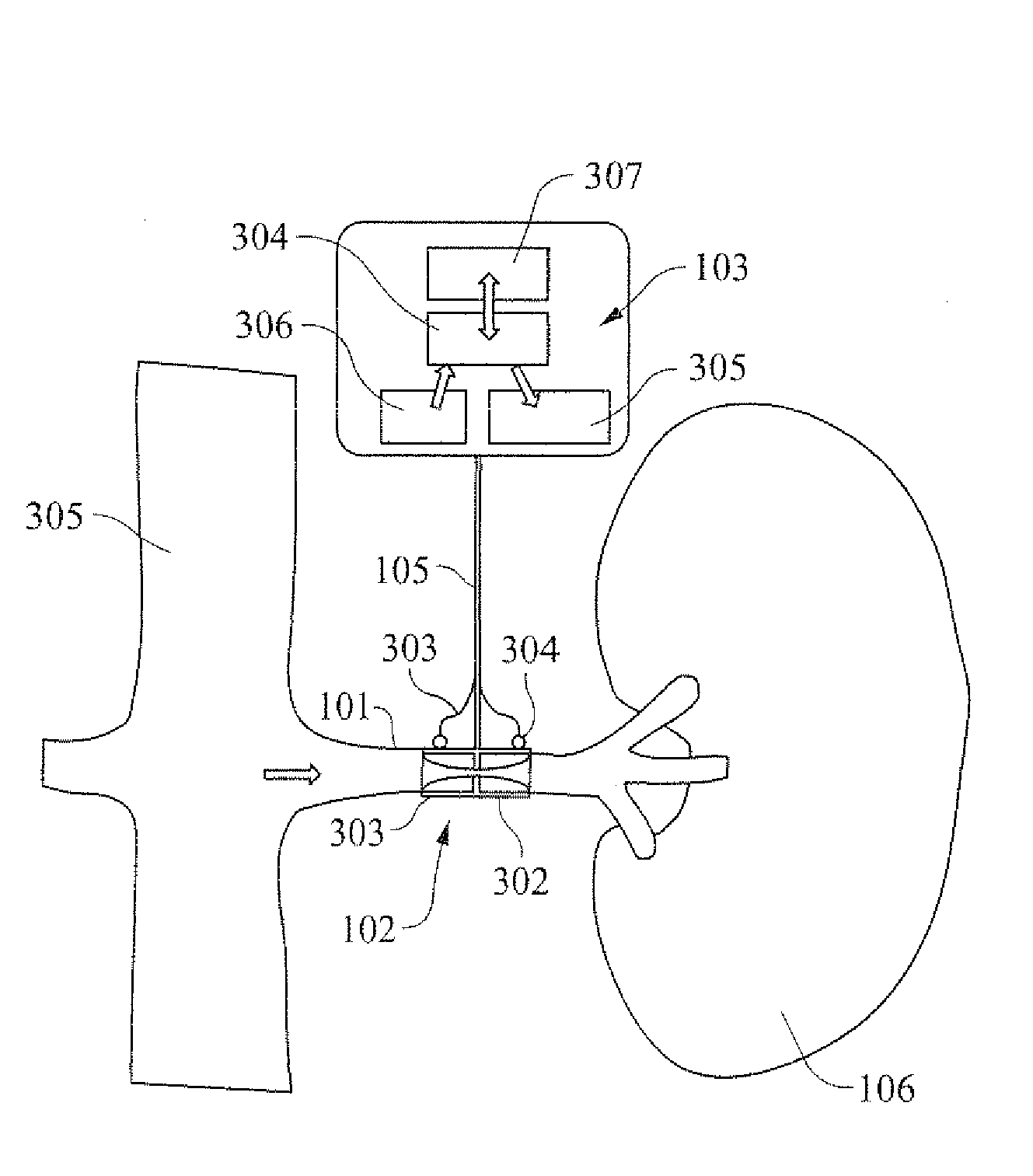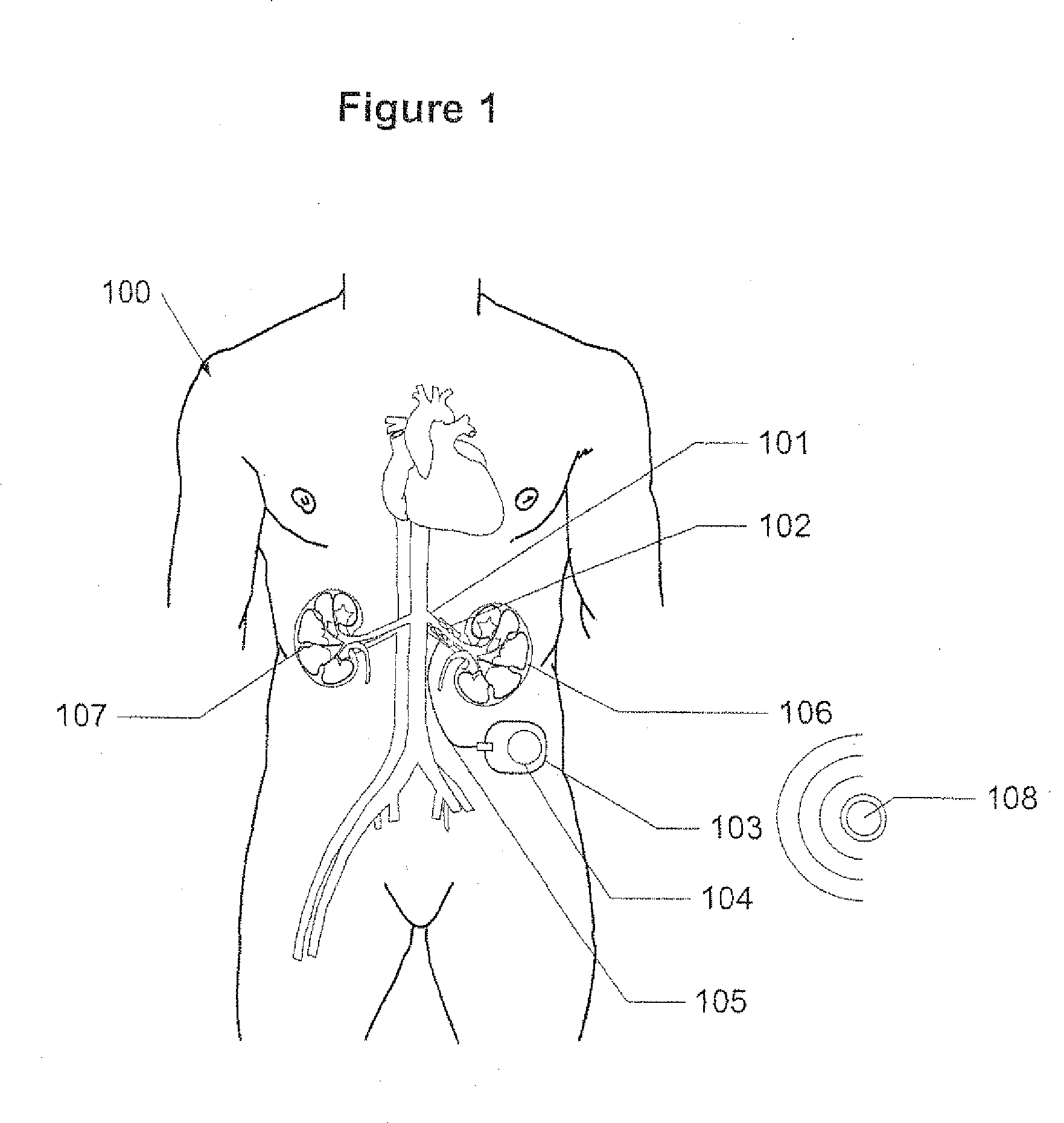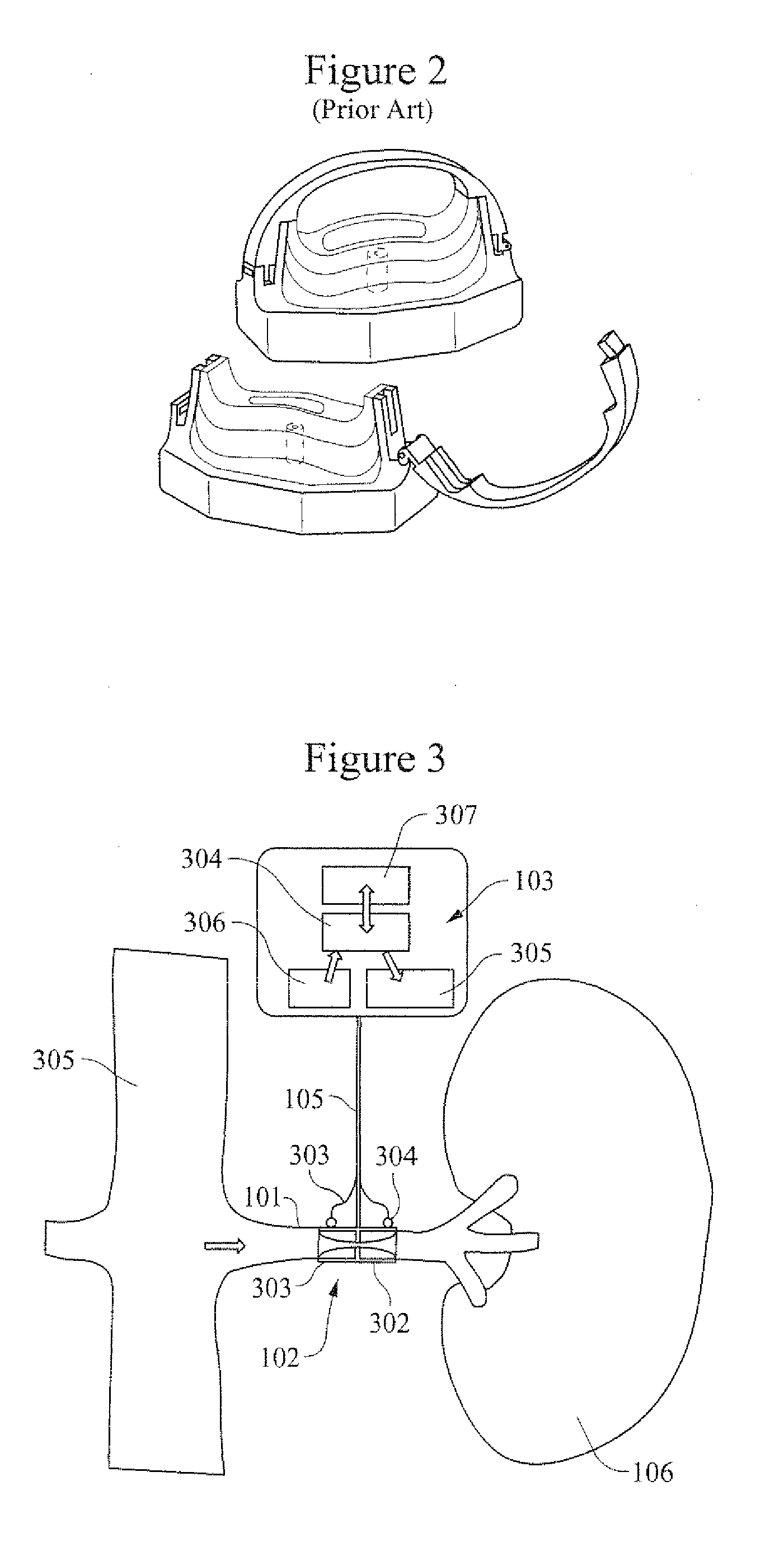Method and apparatus for reducing renal blood pressure
a technology of renal blood pressure and apparatus, applied in the field of renal blood pressure reduction, can solve problems such as other organ dysfunction, achieve the effects of reducing arterial blood pressure, reducing the progression of esrd, and reducing systemic arterial pressur
- Summary
- Abstract
- Description
- Claims
- Application Information
AI Technical Summary
Benefits of technology
Problems solved by technology
Method used
Image
Examples
Embodiment Construction
[0056]For the proposed clinical use, the capability of the disclosed treatment, method and apparatus is to reduce and regulate the Renal Perfusion Pressure (RPP) with the goal of improving the patient's renal function and overall condition, reduce hypertension and slow down, arrest or reverse the progression of renal disease.
[0057]FIG. 1 shows a patient 100 suffering from CRF treated in accordance with the treatment, method and apparatus disclosed herein. An implantable occluder device 102 is implanted in the patient's body and envelopes the renal artery 101. Right and left renal arteries supply oxygenated arterial blood to the kidneys 107 and 106. An implantable controller device 103 can be implanted in a pocket under the skin that can be an active battery powered, sealed electric device similar to a cardiac pacemaker or implantable nerve stimulator. It can incorporate circuits and programmable logic 104. The controller device can be connected to the occlude 102 by wires and tubes ...
PUM
 Login to View More
Login to View More Abstract
Description
Claims
Application Information
 Login to View More
Login to View More - R&D
- Intellectual Property
- Life Sciences
- Materials
- Tech Scout
- Unparalleled Data Quality
- Higher Quality Content
- 60% Fewer Hallucinations
Browse by: Latest US Patents, China's latest patents, Technical Efficacy Thesaurus, Application Domain, Technology Topic, Popular Technical Reports.
© 2025 PatSnap. All rights reserved.Legal|Privacy policy|Modern Slavery Act Transparency Statement|Sitemap|About US| Contact US: help@patsnap.com



